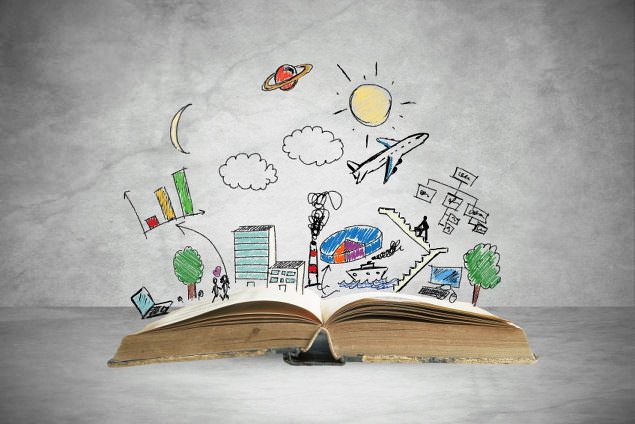

Google’s program of scanning more than 20 million books and making these books searchable to the public is Fair Use under Copyright law, ruled the New York Southern District. Accordingly, Google can proceed to make book portions available online without having to secure copyright licenses or otherwise compensate authors.
This result comes as no surprise because Google Books evidently furthers the purpose of the Copyright Act (i.e. “to advance the progress of the arts and sciences”) and that Google shrewdly built restrictions into Google Books rendering an adverse holding unlikely. Google will avoid paying billions in copyright licensing fees due, in large part, to these built-in limitations. This victory was engineered preemptively and lies in Google Books’ astute design.
The likelihood of suits was very high
In deciding to digitize and make available to the public millions of books, Google did not need telepathic ability to foresee a copyright infringement suit coming their way. In fact, they got sued a year after the program launched. So, Google diligently proceeded to conceive a fair use-proof system that would address the concerns that would eventually come up in court.
What is important to realize is that Google Books is not Fair Use simply because of its immense benefit to society. Had it been Google Books’ sole feature, the program would have surely not pass muster because benefit to society loosely corresponds to just one of the four Fair Use factors. ((The Fair Use factor that correlates most to the “advancement of art and science” is the first factor, “the purpose and character of the use, including whether such use is of a commercial nature or is for nonprofit educational purposes.” 17 U.S.C. § 107(1), which in turn investigates whether the use is transformative.)) And, while a key component, much more was needed to prevail.
Google Books Built-In Limitations
Google Books’ design encompasses the following limitations:
(1) Users cannot access entire books; and
(2) Located in close proximity to any given book’s excerpts are links to online bookstores, such as Amazon or Barnes & Nobles, which are prominently displayed.
These two restrictions are the key reasons the court had to rule in Google’s favor.
(1) Users Simply Can’t read books in full on Google Books
Google takes serious security measures to prevent users from viewing a complete copy of a book, the court found. For a book of 100 pages, one query will display at most 0.0075% of the book; while for a book of 500 pages, one fifth that percentage (Google’s Brief.) Even an “attacker,” trying to obtain from Google Books an entire book, would still be short of at least 1/8th from every page and 10% of all pages; and that’s assuming the attacker has a physical copy of the book in front of him to know what to search for. Accordingly, Google designed Google Books in such a way that readers could not read books in full; for that purpose, they would need to buy or rent books.
These crucial built-in limitations gave Google a strong argument to rely on under “the effect of the use upon the potential market for or value of the copyrighted work” factor. Because the restrictions make it impossible for readers to read entire books, Google made it particularly easy for the court to hold that Google Programs “do not replace the books.”
The same restrictions were equally important with regards tot the fourth Fair Use factor, which assesses “the amount and substantiality of the portion used in relation to the copyrighted work as a whole.” This factor could have been a severe blow to Google because Google scans books in their entirety. Ordinarily, such slavish copies would heavily weigh against Google. But, thanks to the built-in limitations, the court found this factor to only slightly weigh against Google. As the court noted, “significantly, Google limits the amount of text it displays in response to a search.” The limitations neutralized an important threat.
(2) Prominent Display of Bookstores links
The prominent display of links to online bookstores also helped Google show that its program would not replace book. In giving valuable page real estate to links pointing to online bookstores, Google got the point across and successfully argued that not only does Google Books not hurt the sales of books, on the contrary, “Google Books enhances the sales of books to the benefit of copyright holders […] generate new audiences and create new sources of income” by exposing users to books they would otherwise not have encountered.
Points To Ponder
Of course, building a fair-use proof system is not achievable in every circumstance. And of course, even if your lawyer approves your fair-use proof business, you might still get embroiled in litigation because, sadly, even the best legal arguments in your support will not keep incumbents from suing you; just look at the multiple suits and appeals against Aereo despite systematic favorable decisions green-lighting their technology.
Ultimately, what makes a Fair Use argument successful is, in part, the actual benefit to society. In that regard, Google Books was destined to receive Fair Use protection. As the court summed up,
It has become an invaluable research tool that permits students, teachers, librarians, and others to more efficiently identify and locate books. It has given scholars the ability, for the first time, to conduct full-text searches of tens of millions of books. It preserves books, in particular out-of-print and old books that have been forgotten in the bowels of libraries, and it gives them new life. It facilitates access to books for print-disabled and remote or underserved populations. It generates new audiences and creates new sources of income for authors and publishers. Indeed, all society benefits.
If this type of socially beneficial innovation is what you do or might do some day, the Fair Use doctrine may be utilized as a potent tool to dispose of expensive copyright licenses – that may otherwise kill the innovation. But, like Google, anticipate tumultuous legal battles and prepare by devising tactical restrictions.


